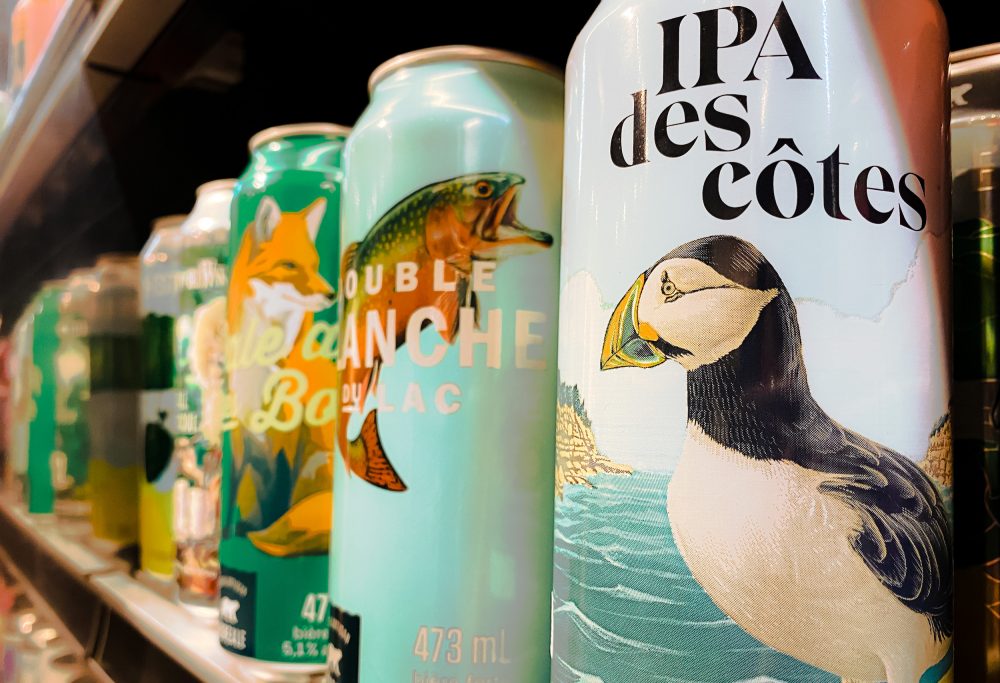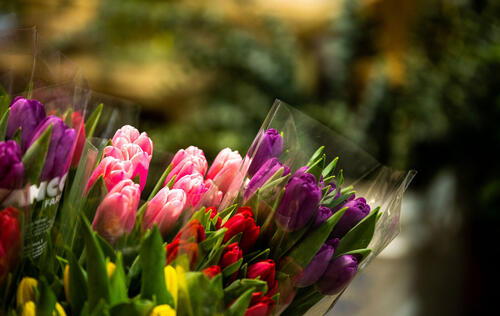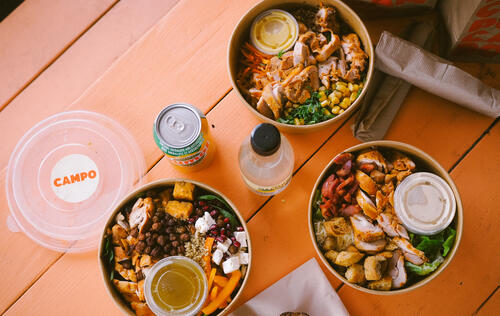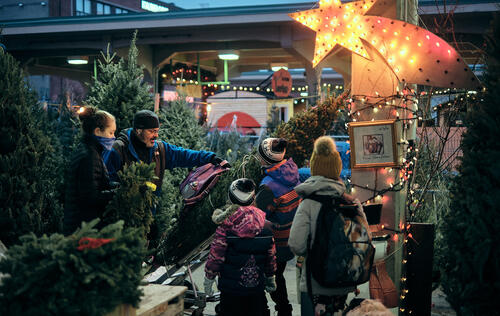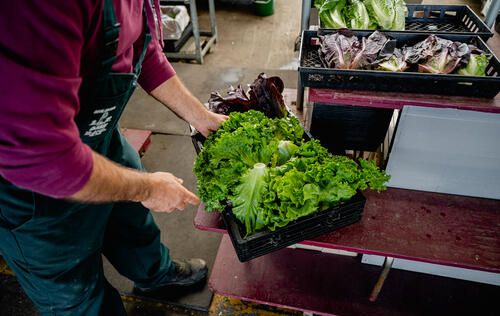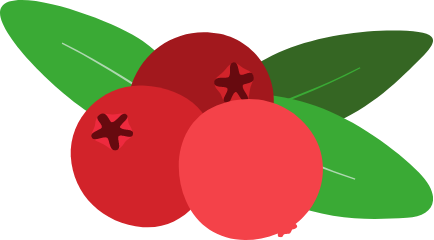Quebec beers: our great love affair with hops
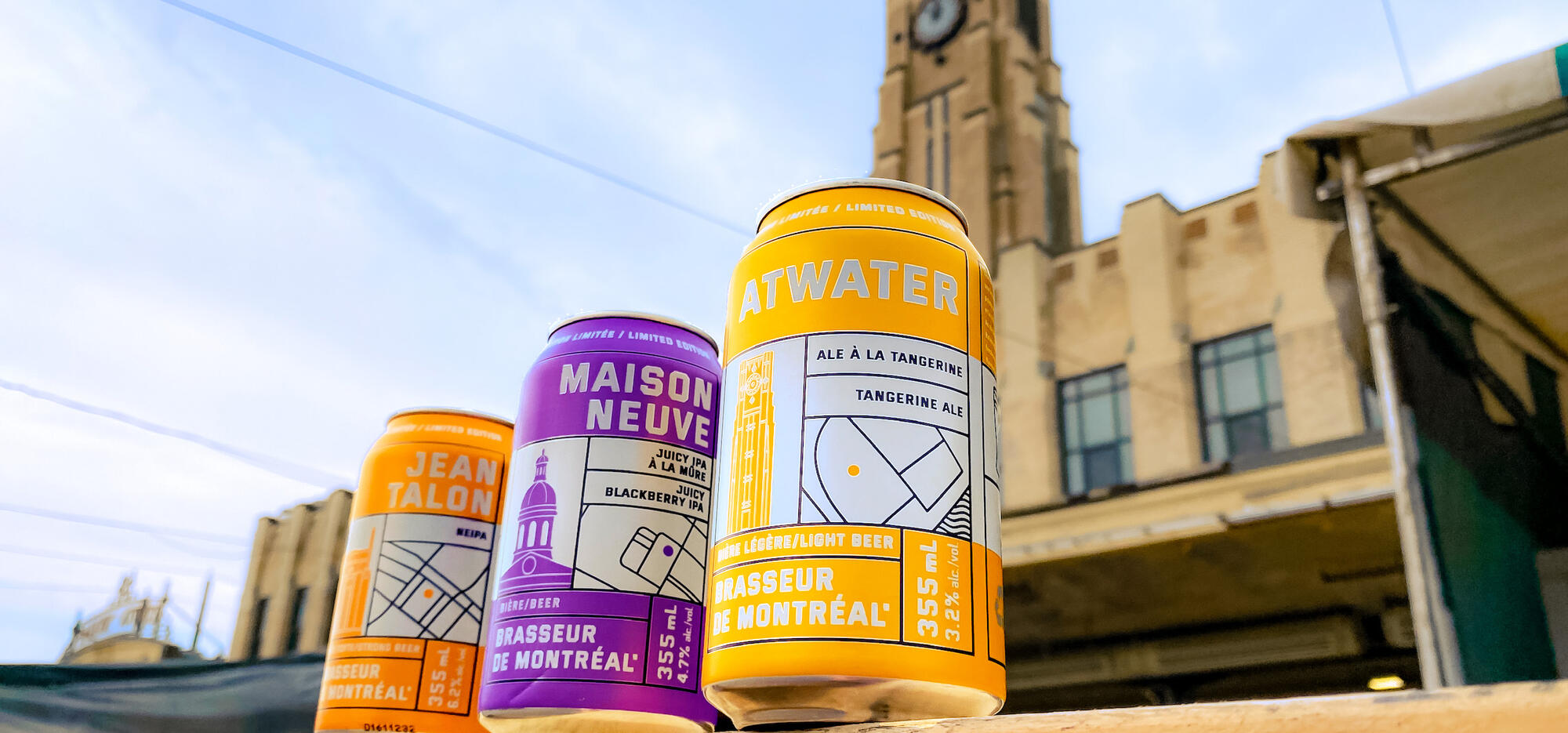
Whether red, brown or blonde, strong or delicate, fruity or spicy, beers have always been part of Quebecers' daily lives, and they've never been as numerous and diverse as they are today. So, to celebrate our affection for them and to mark the Fête nationale, we invite you to delve into their fascinating history and discover this year's most popular beer trends. Cheers!
The arrival of beer in Quebec coincided with that of the first French settlers, many of whom came from regions such as Picardie and Haute-Normandie. Although the less affluent inhabitants of the time initially consumed mainly spruce beer, which contained no hops, the first beers were brewed by religious congregations in the 1620s. However, apart from a failed attempt at a brewing enterprise in the 1660s in Quebec City, and the existence of small professional brewers in Quebec City, Trois-Rivières and Montreal, beer was not yet very present in thatched cottages. It wasn't until the English regime that beer took off across the province.
In 1785, John Molson founded a brewery that has since become a veritable institution, spanning more than 200 years. But it wasn't until 1952 that a second major company, Labatt Breweries, which had been based in Ontario since the 19th century, set up shop in LaSalle. These two big names in commercial beer literally dominated the market unchallenged until the 1980s, when the first Quebec microbreweries saw the light of day, thanks to a new type of licence issued by the Régie des alcools, des courses et des jeux du Québec authorising establishments to brew craft beer.
The very first modern Quebec microbrewery was Massawipi, in North Hatley, in 1982. It was followed over the years by other pioneers: Brasserie le Lion D'Or, Le Cheval Blanc, GMT, McAuslan, Brasseurs du Nord, Brasseurs de l'Anse, Schoune, Seigneuriale and Unibroue.
The rest is history. The creation in 1990 of the Association des microbrasseries du Québec (AMBQ), which ensured cohesion and facilitated the promotion of local microbrewed beers, was the starting point for a movement that continues to amaze us with its dynamism. As of last April, there were 276 breweries in Quebec, including 76 craft brewers. As for the number of beers produced by them, they number in the thousands.
Curiosity and attachment to the menu
When you walk into shops specialising in local products, such as those at Montreal's Marchés publics, you can't help but be amazed by the impressive and colourful selection of beers on offer. I often draw a parallel between beer and wine in Quebec," says Jean-Benoit Collette, Brand Manager for Brasseur de Montréal. Whereas our parents used to drink just one type of beer, just as we used to drink only white or red wine, now people have more specific tastes, like IPA, for example, and go and explore everything that's out there, just as they would with a grape variety for wine."
Quebecers are curious and open-minded when it comes to their beer choices. This is where each microbrewery can bring out its own personality and terroir. Because even though almost all Quebec beers draw their inspiration from French, Belgian and British brewing traditions, they increasingly contain local ingredients, just like the dishes served in restaurants and, yes, in Quebec homes, especially since the arrival of the Covid-19 pandemic. For example, Woopelaï from the Tête d'allumette microbrewery in Bas-Saint-Laurent features beer made with glasswort, a crunchy herb from the banks of the St Lawrence, while Menaud in Charlevoix produces beer made with cherries, a tart little red fruit.
So, even if we can't really say that there is a distinctive style of beer in Quebec, we must salute the creativity and local colour that many microbreweries give to their creations. An approach that seems to delight consumers. ‘They'll stick to brands from their own region that are close to their hearts, or try limited-edition beers created by the collaboration of two microbreweries, one of which is located in their corner of the world,’ confirms Mr Collette.
But as with wine, do our choices when it comes to beer take into account the design and evocative name of certain brews? Absolutely! Design is of paramount importance when it comes to beer," explains the expert. Each microbrewery wants to highlight its personality and stand out from its many competitors by playing with colours, designs and fonts. Some don't hesitate to use artists to illustrate and promote their products.
Beer trends in 2021
While there's no shortage of choice when it comes to Quebec beers in the shops, certain trends emerge every year. And those of 2021 are no exception! So what are they at the moment? According to Benoit Collette, there are four main ones.
While there's no shortage of choice when it comes to Quebec beers in the shops, certain trends emerge every year. And those of 2021 are no exception! So what are they at the moment? According to Benoit Collette, there are four main trends: firstly, it's impossible to miss hard seltzers, beverages with 4% to 6% alcohol and no hops. Some microbreweries, such as Oshlag and Boréale, have produced beer versions of these. The second trend is Sour or sour beers, often associated with summer, with their notes of citrus and red fruit. IPAs remain the most popular beers on the market, with several variations (New England IPA, Juicy IPA, DDH IPA) that accentuate their fruity character. But the biggest trend at the moment, and one that's growing by leaps and bounds, with 40% more sales in the last year, is non-alcoholic beers. There are now hundreds of locally-produced beers that are having fun revisiting classics or creating new ones.
At the crossroads of all these trends, Brasseur de Montréal has just created three beers in the colours of the Marchés publics de Montréal. "We wanted fruity beers for summer, and to choose icons of the city to illustrate them. And when you think of fruit and freshness, what automatically comes to mind are public markets! So now we're inviting you to discover Atwater, an Ale with notes of tangerine at 3.2% alcohol, Jean-Talon, a full-bodied New England IPA with notes of peach at 6.2% alcohol, and Maisonneuve, a blackberry-flavoured Juicy IPA at 4.7% alcohol. A tempting invitation, isn't it? So, happy summer drinking - and Quebec drinking, of course - to you all!
You'll find beers bearing the market logos at Fromagerie Atwater at the Atwater Market, as well as several Quebec microbrewery beers at the Marché des Saveurs du Québec at the Jean-Talon Market and at Aliments Merci at the Maisonneuve Market.
